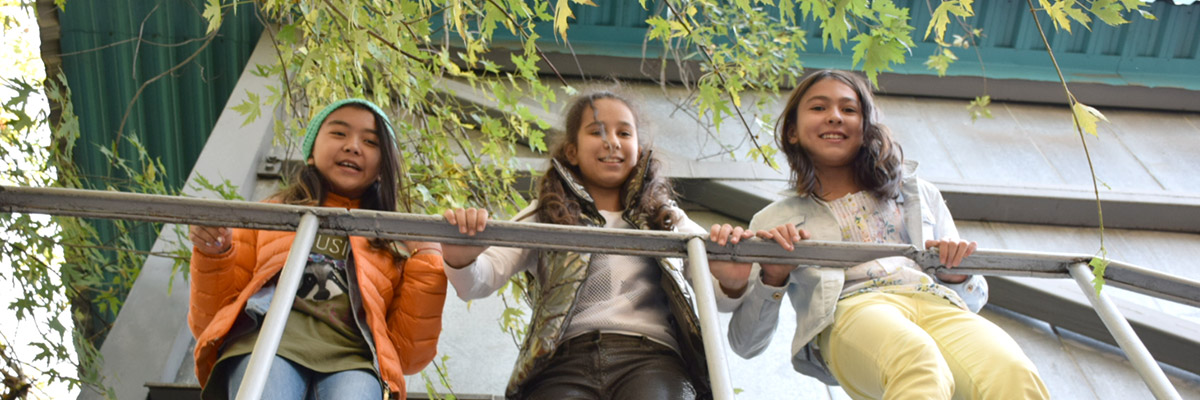
MYP Inquiry
Teaching and learning through inquiry
Knowledge based on research in the broadest sense - is a process that is associated with the formation of a deeper level of understanding. Cognition includes thinking, research, polling and communications. All IB programmes develop curiosity and promote the development of critical and creative thinking.
The inquiry supports the conceptual understanding of the global context. Teachers and students develop the main idea of the unit and use the knowledge questions (factual, conceptual, discussion) for the study of a topic. Through the learning process, students develop a certain interdisciplinary and disciplinary approaches to teaching.
Conceptual understanding
- Concept is a "great idea", the meaning of which goes beyond the specific framework, object or place in time.
- Concepts are ways to penetrate into the problems of students and ideas of personal, local and global significance.
- Concept occupy important place in the structure of knowledge and the demand from students and teachers thought the depth of which varies with the growing level of complexity of the facts and issues.
- Concept express understanding that students "take them with you" on an exciting journey - learning throughout life. Students use conceptual understanding in solving and analyzing problems and evaluating decisions that may affect them themselves, the community and the whole world.
KEY CONCEPTS
Inquiry is focused on the key concepts that contribute to the development of a broad curriculum. They are the big ideas that combine themes within and between subjects.
MYP program identifies 16 key concepts that will be studied as part of the curriculum. These key concepts present understanding, developed by students outside of the eight subject groups of the MYP, from which they are taken.
| 1. Aesthetics | 2. Change | 3. Communication | 4. Communities |
| 5. Connections | 6. Creativity | 7. Culture | 8. Development |
| 9. Form | 10. Global interactions | 11. Identity | 12. Logic |
| 13. Perspective | 14. Relationships | 15. Time, place and space | 16. Systems |
Global contexts
These and other contexts for teaching and learning inspire explorations of our common humanity and shared guardianship of the planet. They invite reflection on local, national and global communities, as well as the real-life issues and concerns of 11- to 16-year-old students. For each MYP unit, teachers should identify one global context that establishes a focus for meaningful teaching and learning in a programme of international education. Over the course of their study, students should encounter all six global contexts.
This table contains explanations of the MYP global contexts and some of the many explorations that they can inspire.
| Global context | Focus questions and description |
| Identities and relationships | Who am I? Who are we? Students will explore identity; beliefs and values; personal, physical, mental, social and spiritual health; human relationships including families, friends, communities and cultures; what it means to be human. |
| Orientation in space and time |
What is the meaning of “where” and “when”? Students will explore personal histories; homes and journeys; turning points in humankind; discoveries; explorations and migrations of humankind; the relationships between, and the interconnectedness of, individuals and civilizations, from personal, local and global perspectives. |
| Personal and cultural expression |
What is the nature and purpose of creative expression? Students will explore the ways in which we discover and express ideas, feelings, nature, culture, beliefs and values; the ways in which we reflect on, extend and enjoy our creativity; our appreciation of the aesthetic. |
| Scientific and technical innovation |
How do we understand the world in which we live? Students will explore the natural world and its laws; the interaction between people and the natural world; how humans use their understanding of scientific principles; the impact of scientific and technological advances on communities and environments; the impact of environments on human activity; how humans adapt environments to their needs. |
| Globalization and sustainability |
How is everything connected? Students will explore the interconnectedness of human-made systems and communities; the relationship between local and global processes; how local experiences mediate the global; the opportunities and tensions provided by worldinterconnectedness; the impact of decision-making on humankind and the environment. |
| Fairness and development | What are the consequences of our common humanity? Students will explore rights and responsibilities; the relationship between communities; sharing finite resources with other people and with other living things; access to equal opportunities; peace and conflict resolution. |









